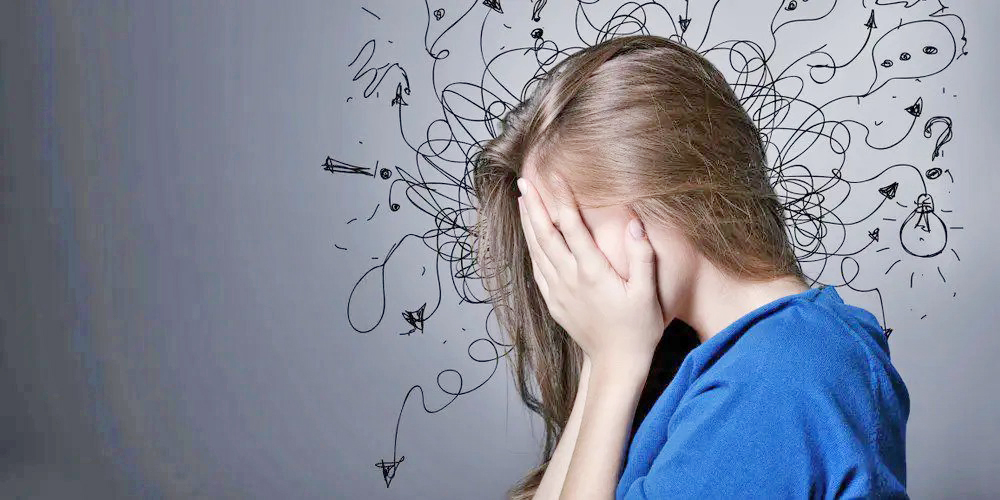
Anxiety is a natural state of mind that contributes in the psychological and emotional development of an individual. Without anxiety students would not care to study, employees would not bother to be punctual and people appearing in competitive exams would not be able to prepare on time. It is necessary to have reasonable amount of stress and tension to accomplish any task. But excess of everything is bad, so is with worrying also. Excess worrying turns to anxiety. it becomes a hindrance in our work, then this condition is called anxiety disorder. It leads to excessive restlessness which is harmful for both your working capacity and your body.
Restlessness can be a sign of both physical and mental illness. Nervousness describes your state of restlessness and internal tension. From a stinging pain or feeling of being sick to psychological distress when someone or something bothers you. This can also be a cause of restlessness.
Anxiety is a normal state of mind. But this anxiety becomes so much that it hinders our physical and mental balance and this situation continues for two weeks or more and the person does not even know the reason for this anxiety. This is called anxiety disorder. Although it is part of a normal emotional system and hence not considered a disorder, there are certain levels or parameters at which it can be considered abnormal.
Due to constant anxiety, many complex physical problems arise in the body, such as increased blood pressure. It may also affect immunity. You may also be at increased risk of infection. If you are always worried or it starts affecting your daily activities, you may have an anxiety disorder. Many times, sudden fear or remaining under stress after trauma are also causes of restlessness.
What to do in case of nervousness or mental restlessness? Watch full video on INDIA HEALTH TV
Symptoms of restlessness:
1. Not being able to concentrate on any object or subject and being irritable.
2. Being very upset or uncomfortable for a long time. Not getting enough sleep and feeling tired.
3. Excessive caution and suspicious nature.
4. Sometimes due to restlessness you remain unbalanced and are not able to rest properly.
5. Feeling of wetness or tears in the eyes.
6. You frequently need to seek reassurance or support from other people.
7. Increased heartbeat and excessive sweating.
8. Rapid breathing, feeling of shivering.
9. Nausea, chest pain, headache, sweating are also its symptoms.
10. Lack of appetite, upset digestive system, need to urinate frequently.
11. Lack of patience, wandering a little out of place without any purpose,
Nervousness, excessive enthusiasm and stubborn behavior are also its symptoms.
Treatment:
Some psychiatric medications are also available for the treatment of anxiety disorders. But before using those medicines, some practical methods can be used. According to experts, you can deal with situations like nervousness, restlessness or fear even without medicines. In severe cases, doctors may prescribe a combination of mood stabilizers, anti-depressants, and anti-anxiety medications. But keep these things in mind so that you can control this problem.
1. Leave worry and anger, avoid thinking excessively about the past and future.
2. Identify pressure points to calm anger and anxiety. Help of acupressure expert can also be taken in this.
3. Give maximum rest to the body. Due to nervousness or any mental problem, you may feel stiffness, stress and tension in your muscles. Techniques like progressive muscle relaxation can help you calm and center yourself.
4. Exercise regularly. Run, walk, morning and evening walk. Stress relieving yoga and asanas can also be helpful in this.
5. Drink as much water as possible to keep your energy level positive.
6. Minimize the use of mobile and other gadgets. You can watch content that makes you laugh or feel happy when needed.
7. Strengthen your digestive power, consume fruits rich in vitamins and fiber.
If the methods mentioned above don’t offer any relief then without any hesitation should consult a psychiatrist. So that it does not convert into chronic anxiety.















